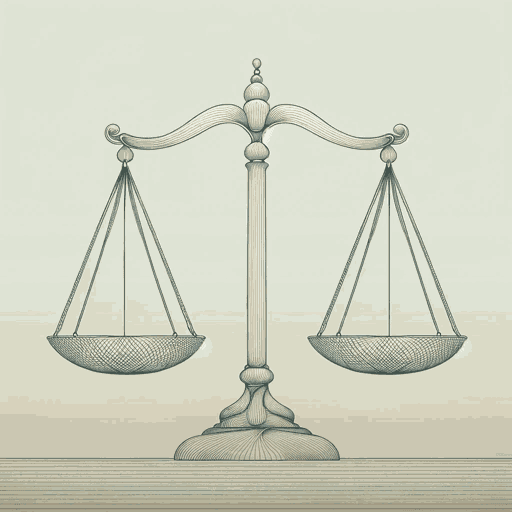70 pages • 2 hours read
Steve BogiraCourtroom 302
Nonfiction | Book | Adult | Published in 2005A modern alternative to SparkNotes and CliffsNotes, SuperSummary offers high-quality Study Guides with detailed chapter summaries and analysis of major themes, characters, and more.
Important Quotes
“Those marched into the basement are cloaked in the presumption of innocence—in theory. The prevailing wisdom down here, however is: if they’re so innocent, why’d they arrive in handcuffs?”
(Prologue, Page 7)
This quotation elucidates both the tendency to prejudge criminals before understanding the circumstances of their lives—a prejudice frequently explored in the narrative—and describes the bias that causes people to regard them as incorrigible underworld figures. The language in the quotation reflects the latter sentiment. The fact that they have criminals march makes them appear uniform. Though all of the accused are presumed innocent, they are “cloaked,” like Grim Reapers. Bogira poses to the reader the rhetorical question, which reflects the views of the deputy officers, to force confrontation of possible prejudices.
“‘They act like slave masters,’ one of tonight’s prisoners, Terrance Evans, says later of the deputies. But at least they don’t play favorites, Evans says. ‘You could be black or white, crippled or mental—they still treat you like a dog.’”
(Prologue , Page 14)
Evans’s assessment of the deputies is paradoxical. He compares them to “slave masters,” which reasserts the tendency to regard the justice system as a new means to entrap black people in unpaid labor, but he also embraces the “justice is blind” view by saying that the deputies are equally contemptuous of all criminals. They view prisoners as subhuman, which is a different form of prejudice from racism or biases against the mentally ill.
“Most of tonight’s allegedly violent offenders—the nine men here for domestic battery—are sitting in the misdemeanor lockup, it being a graver offense in Illinois to possess a minute amount of cocaine or heroin than to beat a wife, girlfriend, or a sister.”
(Prologue , Page 15)
Bogira illustrates the severity of the War Against Drugs, initiated in 1970 during the Nixon Administration. The demonization of controlled substances—and of the people who possess them—led to a tendency to excessively prosecute both users and small-time dealers.

